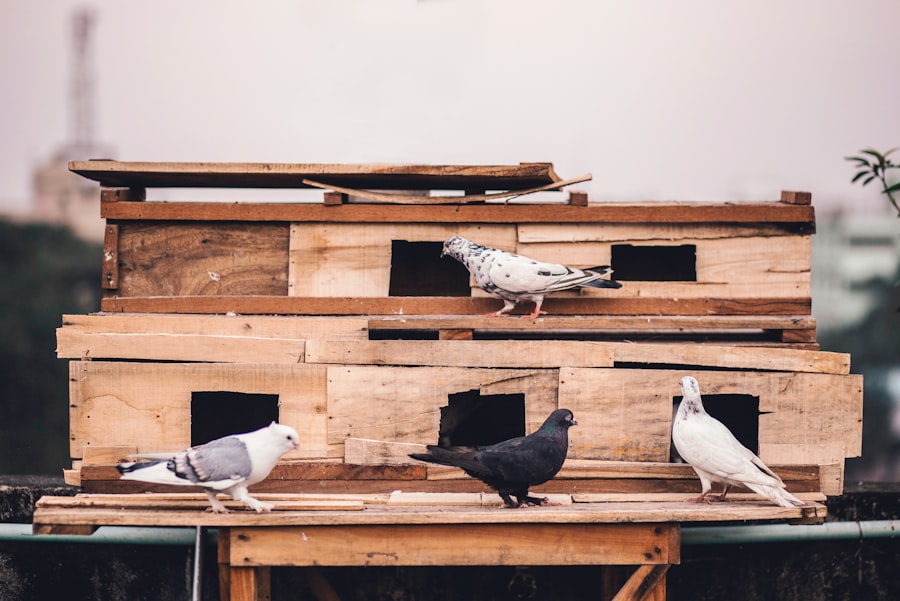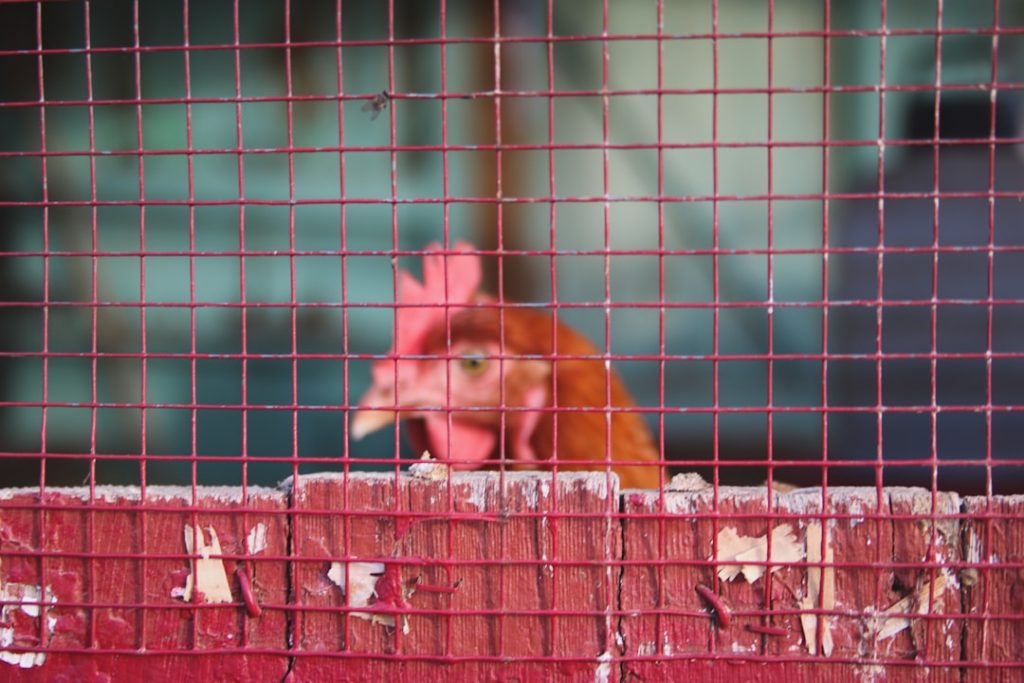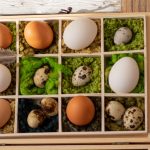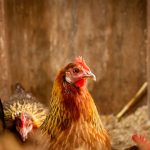Maintaining optimal temperature for chickens during summer is essential for their health and productivity. Chickens lack sweat glands and rely on panting to regulate body temperature, making them particularly vulnerable to heat stress. When exposed to high temperatures, chickens can experience dehydration, heat exhaustion, and potentially fatal consequences.
Chicken owners must recognize signs of heat stress and implement preventive measures to ensure their flock’s comfort and well-being during hot weather. Chickens are highly sensitive to temperature fluctuations, especially extreme heat. Heat stress can occur when ambient temperatures exceed 85°F (29.4°C).
Symptoms of heat stress in chickens include heavy panting, lethargy, reduced egg production, and in severe cases, seizures. These signs indicate that immediate action is necessary to cool the birds and prevent further health complications. To protect chickens from heat-related issues, owners should provide adequate shade, ventilation, and access to fresh, cool water.
Implementing cooling strategies such as misting systems, frozen treats, or shallow pools can help chickens regulate their body temperature. Additionally, scheduling feeding times during cooler parts of the day and offering a balanced diet can support the flock’s overall health and resilience to heat stress. By prioritizing their chickens’ thermal comfort and implementing appropriate cooling measures, owners can maintain a healthy and productive flock throughout the summer months.
Regular monitoring and prompt response to signs of heat stress are crucial for ensuring the well-being of chickens in hot weather conditions.
Table of Contents
- 1 Providing adequate shade and ventilation for your chickens
- 2 Offering cool treats and refreshing water to your chickens
- 3 Using misters and fans to lower the temperature in the chicken coop
- 4 Adjusting feeding and watering schedules to avoid the hottest parts of the day
- 5 Monitoring your chickens for signs of heat stress and taking necessary precautions
- 6 Planning for extreme heat events and emergency cooling measures for your chickens
- 7 FAQs
Key Takeaways
- Keeping chickens cool in the summer is crucial for their health and well-being
- Providing adequate shade and ventilation is essential to prevent heat stress in chickens
- Offering cool treats and refreshing water can help chickens stay hydrated and cool
- Using misters and fans can help lower the temperature in the chicken coop
- Adjusting feeding and watering schedules to avoid the hottest parts of the day can help prevent heat stress in chickens
- Monitoring chickens for signs of heat stress and taking necessary precautions is important for their well-being
- Planning for extreme heat events and having emergency cooling measures in place is crucial for the safety of your chickens
Providing adequate shade and ventilation for your chickens
Providing Adequate Shade
One of the most effective ways to keep chickens cool in the summer is by providing them with adequate shade. Shade is essential for protecting chickens from direct sunlight and reducing the ambient temperature in their environment. This can be achieved by positioning the chicken coop in a shaded area or by creating artificial shade using tarps or umbrellas.
Ensuring Proper Ventilation
Additionally, ensuring that the coop is well-ventilated is crucial for allowing hot air to escape and fresh air to circulate. This can be achieved by installing windows, vents, or fans in the coop to promote airflow and prevent the buildup of heat.
Creating Shaded Areas in the Chicken Run
In addition to providing shade and ventilation in the coop, it’s important to create shaded areas in the chicken run where the flock can seek refuge from the sun. This can be achieved by installing shade cloth or planting trees and shrubs to provide natural shade.
By creating a cool and comfortable environment for chickens to escape the heat, owners can help prevent heat stress and its associated health issues. Prioritizing shade and ventilation is essential for ensuring the well-being of chickens during the hot summer months.
Offering cool treats and refreshing water to your chickens

Another way to keep chickens cool in the summer is by offering them cool treats and refreshing water. Cool treats such as frozen fruits and vegetables can provide chickens with a source of hydration and help lower their body temperature. Watermelon, cucumbers, and frozen berries are popular choices that chickens enjoy pecking at while also staying cool.
Additionally, providing access to cool, fresh water is essential for preventing dehydration and heat stress in chickens. Owners should regularly check water sources to ensure they are clean, cool, and readily available for their flock. In addition to offering cool treats and refreshing water, owners can also consider adding electrolytes to their chickens’ water to help replenish essential nutrients lost through panting and sweating.
Electrolytes can help maintain hydration levels and support overall health during periods of extreme heat. By incorporating these strategies into their chickens’ diet and hydration routine, owners can help keep their flock cool and comfortable throughout the summer.
Using misters and fans to lower the temperature in the chicken coop
Misters and fans are effective tools for lowering the temperature in the chicken coop during hot summer days. Misters can be installed in the chicken run or around the coop to create a fine mist that helps cool the surrounding air. This can provide relief for chickens by reducing the ambient temperature and creating a more comfortable environment.
Additionally, fans can be used to promote airflow and prevent the buildup of heat inside the coop. By strategically placing fans to circulate air throughout the coop, owners can help maintain a cooler environment for their flock. In addition to misters and fans, evaporative cooling systems can also be used to lower the temperature in the chicken coop.
These systems work by drawing warm air through a wet pad, which cools the air before circulating it back into the coop. This can be an effective way to reduce the ambient temperature and create a more comfortable environment for chickens during hot summer days. By utilizing these cooling methods, owners can help mitigate the effects of heat stress and ensure the well-being of their flock.
Adjusting feeding and watering schedules to avoid the hottest parts of the day
During the summer months, it’s important for chicken owners to adjust their feeding and watering schedules to avoid the hottest parts of the day. Feeding chickens early in the morning or later in the evening can help prevent them from exerting unnecessary energy during the peak heat hours. Additionally, providing access to fresh water throughout the day is essential for keeping chickens hydrated and cool.
Owners should regularly check water sources to ensure they are clean, cool, and readily available for their flock. In addition to adjusting feeding and watering schedules, owners can also consider providing frozen or refrigerated treats during the hottest parts of the day to help keep their flock cool. Frozen fruits and vegetables can provide chickens with a source of hydration while also offering relief from the heat.
By being mindful of their chickens’ needs and adjusting their care routine accordingly, owners can help prevent heat stress and ensure the well-being of their flock during the summer months.
Monitoring your chickens for signs of heat stress and taking necessary precautions

Monitoring chickens for signs of heat stress is crucial for identifying potential issues early on and taking necessary precautions to keep them cool.
Recognizing the Signs of Heat Stress
Owners should regularly observe their flock for symptoms such as heavy panting, lethargy, decreased egg production, and pale combs and wattles. If any of these signs are present, immediate action should be taken to cool down the chickens and prevent further heat-related health issues.
Precautions to Prevent Heat Stress
In addition to monitoring for signs of heat stress, owners should also be prepared to take necessary precautions such as providing shade, ventilation, cool treats, and refreshing water to their flock.
Proactive Care for a Healthy Flock
Being proactive in addressing potential heat-related issues is essential for ensuring the well-being of chickens during the summer months. By staying vigilant and responsive to their flock’s needs, owners can help prevent heat stress and its associated health issues.
Planning for extreme heat events and emergency cooling measures for your chickens
Planning for extreme heat events is essential for ensuring that chickens remain safe and comfortable during periods of intense heat. Owners should have a plan in place for emergency cooling measures such as misters, fans, shade cloths, and evaporative cooling systems to quickly lower the temperature in the coop if necessary. Additionally, having a backup water supply and electrolytes on hand can help ensure that chickens remain hydrated and healthy during extreme heat events.
In addition to emergency cooling measures, owners should also have a plan for relocating their flock to a cooler environment if needed. This may involve temporarily moving chickens indoors or to a shaded area with better ventilation until the extreme heat subsides. By having a comprehensive plan in place for extreme heat events, owners can help ensure the safety and well-being of their flock during challenging weather conditions.
In conclusion, keeping chickens cool in the summer is essential for preventing heat stress and ensuring the well-being of your flock. By understanding the importance of shade, ventilation, cool treats, refreshing water, misters, fans, adjusted feeding and watering schedules, monitoring for signs of heat stress, and planning for extreme heat events, owners can take proactive measures to keep their chickens comfortable during hot summer days. Prioritizing their flock’s well-being and implementing strategies to mitigate the effects of heat will help ensure that chickens remain healthy and productive throughout the summer months.
If you’re looking for ways to keep your chickens cool during the summer, you may also be interested in learning about when guinea fowl lay eggs. Check out this article to discover more about the breeding habits of guinea fowl and how to care for them in hot weather.
FAQs
What are some signs that chickens are overheated?
Some signs that chickens are overheated include panting, holding their wings away from their bodies, reduced egg production, and lethargy.
How can I keep my chickens cool during the summer?
You can keep your chickens cool during the summer by providing plenty of shade, ensuring good ventilation in the coop, offering cool water to drink, and providing frozen treats such as fruits and vegetables.
What are some ways to provide shade for chickens?
You can provide shade for chickens by using tarps or shade cloths to cover their coop and run, planting trees or shrubs to create natural shade, and providing structures such as awnings or umbrellas.
How can I improve ventilation in the chicken coop?
You can improve ventilation in the chicken coop by installing windows or vents to allow for airflow, using fans to circulate air, and ensuring that the coop is not overcrowded.
What should I do if my chickens are overheated?
If your chickens are overheated, you should immediately move them to a cooler area with shade and provide them with cool water to drink. You can also use a mister or hose to lightly spray them with water to help lower their body temperature.

Meet Walter, the feathered-friend fanatic of Florida! Nestled in the sunshine state, Walter struts through life with his feathered companions, clucking his way to happiness. With a coop that’s fancier than a five-star hotel, he’s the Don Juan of the chicken world. When he’s not teaching his hens to do the cha-cha, you’ll find him in a heated debate with his prized rooster, Sir Clucks-a-Lot. Walter’s poultry passion is no yolk; he’s the sunny-side-up guy you never knew you needed in your flock of friends!
Meet Walter, the feathered-friend fanatic of Florida! Nestled in the sunshine state, Walter struts through life with his feathered companions, clucking his way to happiness. With a coop that’s fancier than a five-star hotel, he’s the Don Juan of the chicken world. When he’s not teaching his hens to do the cha-cha, you’ll find him in a heated debate with his prized rooster, Sir Clucks-a-Lot. Walter’s poultry passion is no yolk; he’s the sunny-side-up guy you never knew you needed in your flock of friends!







